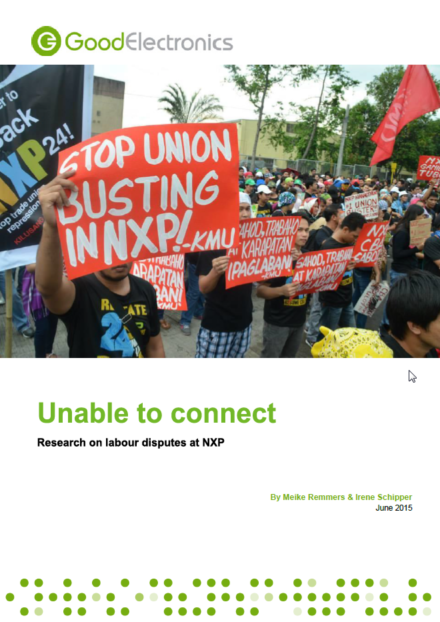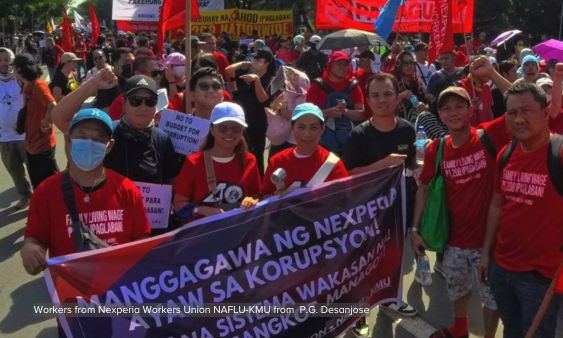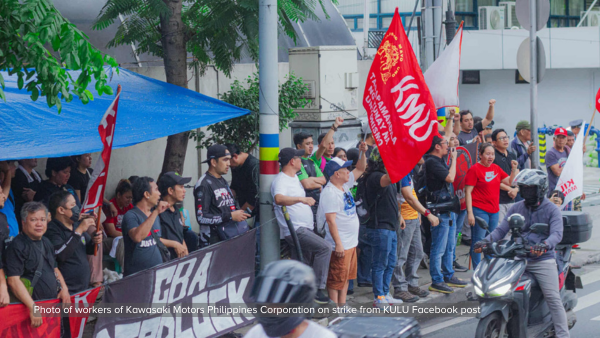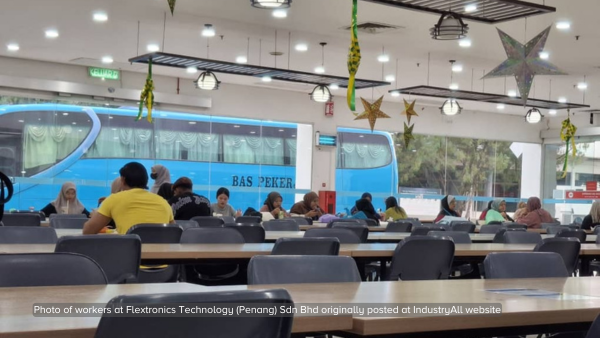Today, as Dutch chipmaker NXP is holding its annual shareholder meeting, the GoodElectronics Networks publishes a report about NXP’s conflicts with local trade unions in 2014. The year was characterized by major labour disputes, strikes and international solidarity actions, but these are not mentioned in NXP’s Annual Report. These disputes could cause disruptions to production, putting a strain on NXP’s current business achievements. NXP also risks the goodwill of high-profile customers such as Apple who are sensitive for labour rights violations in their supply chain.
Unable to connect
Union members dismissed in the Philippines
For the NXP union in the Philippines, problems started on May 2014, when a group of workers was pulled out of production and fired for participating in and encouraging a so-called illegitimate strike. As the “strike” happened during a public holiday where workers are not obliged to report for work, the termination was actually a clear case of union-busting: all 24 dismissed workers were union officers and member of the collective bargaining negotiation panel.
Harassment of union members in Thailand
Negotiations with the Thai NXP Manufacturing Workers’ Union have been ongoing since September 2012. One of the issues is the new 12-hour shift schedule, claimed by NXP to be compliant with Thai law, which has replaced the old 8-hour working days. A call for action by the union led to a lock-out of the union members and officials. The harassment of the union is still ongoing today and a new collective bargaining agreement was recently put on hold.
Findings
NXP claims to have good relationships with all its employees and views the disputes with the unions as regular discussions that can take place between company and employee representatives. The case studies indicate otherwise, however. With the introduction of the new work schedule with 12-hour working days in the Thai facility, NXP is depriving its employees of an international labor right as laid down in ILO Convention 1; the right to an 8-hour working day. The illegal dismissal of trade union representatives is a violation of ILO Convention 87 which includes companies to refrain from actions that hamper workers to exercise their trade union rights.
Irene Schipper – researcher at SOMO: “NXP claims it has good relations with all its employees, but actually the company hides some major conflicts from its shareholders. We advise NXP to re-evaluate its employee relations and invest in good relations with local trade unions”.
Watch a video about the dismissal in the Philippines:










